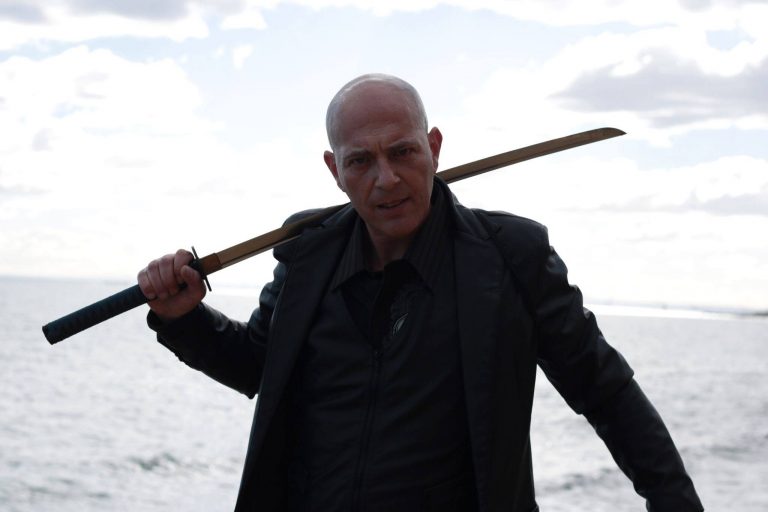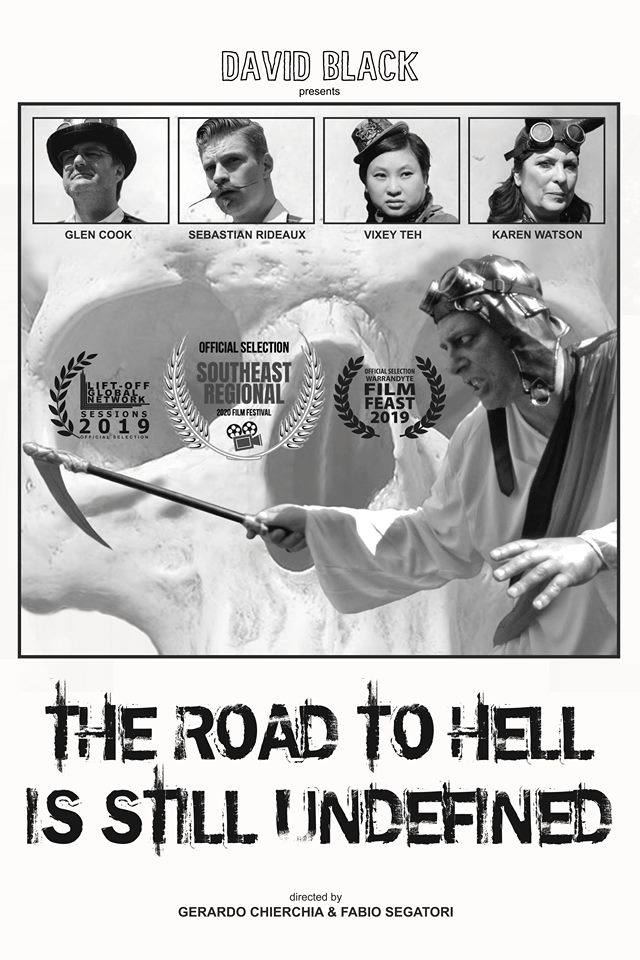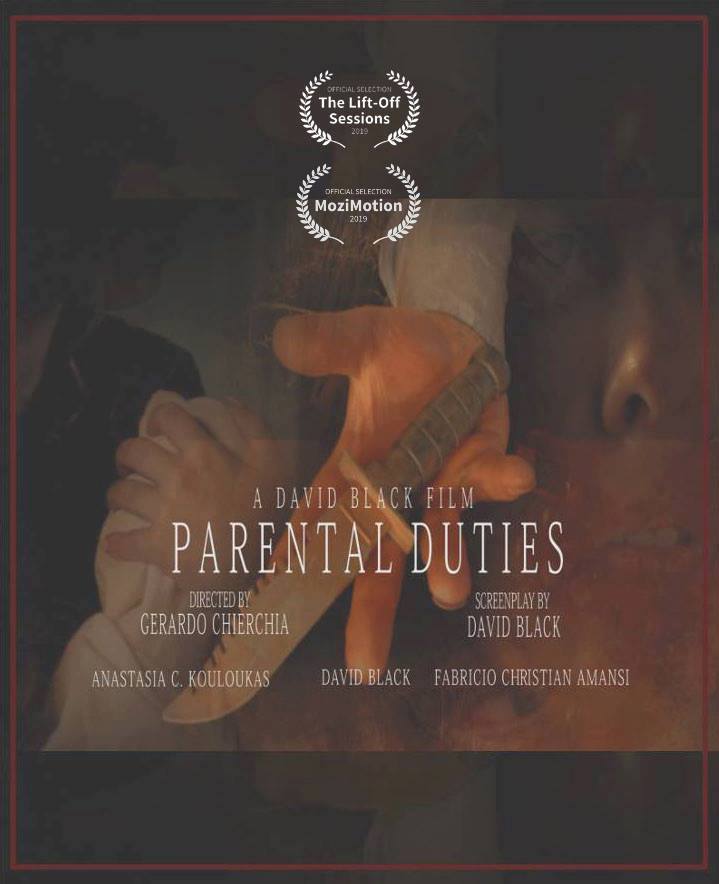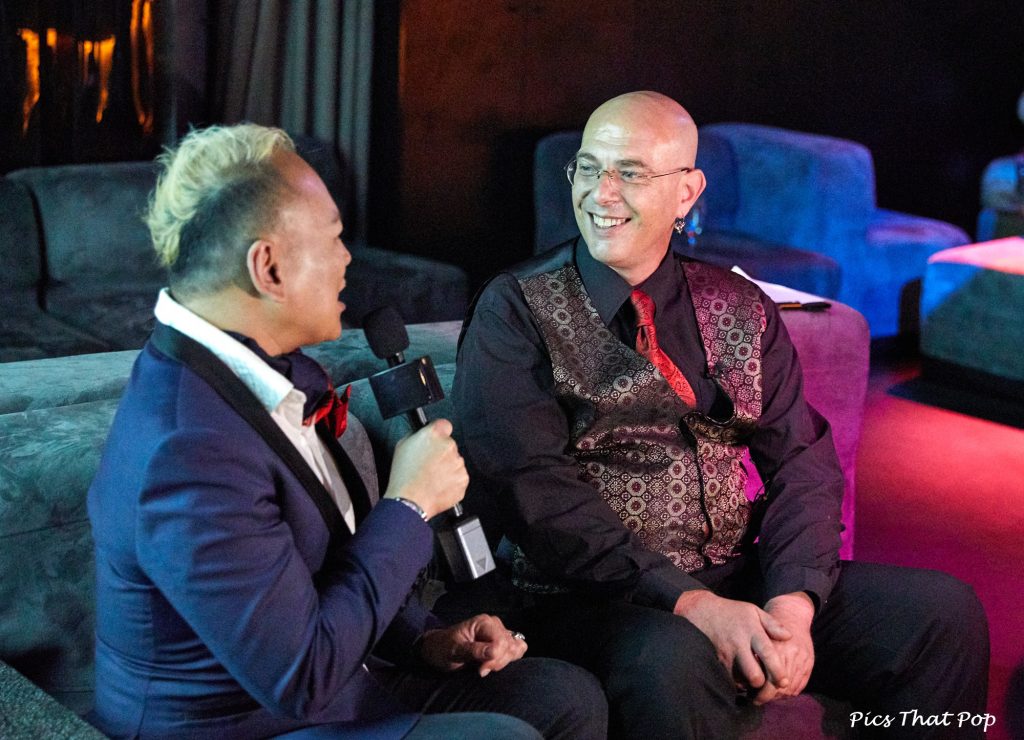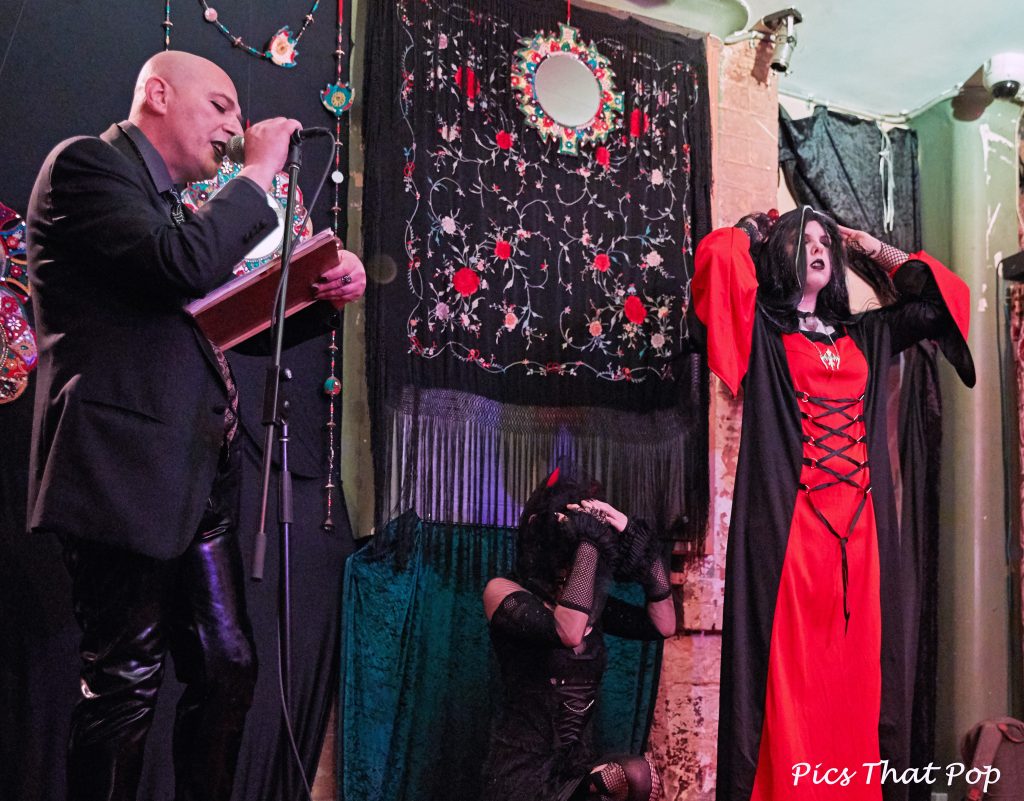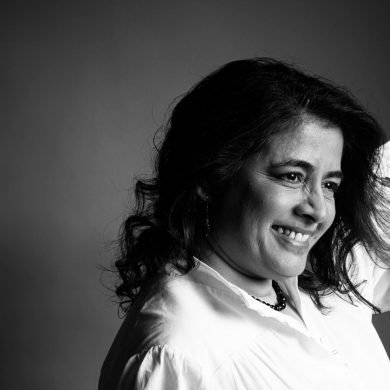One of the most active, exciting and energetic people working the indie scene in Australian cinema is David Black. You may have seen a film of his while scouring YouTube for offbeat stuff, or you’ve been part of the Aussie horror scene and have seen David post about his work, and even if you haven’t, then you’re in for a treat as David talks about his filmmaking process, what it’s like to be an indie filmmaker, and the teams he works with. This is a deep dive of an interview, and a real joy to read.
- I first became aware of your work through your performance in the film The Foaming Node, an unsettling film about a cult that is full of all kinds of bodily emissions. What went into making the film, and what was working with Ian Haig like?
Hi Andrew. Thanks for taking the time to interview me for The Curb. The Foaming Node really was one really way out picture. Working with Ian was fantastic. He had a fairly good vision of what he wanted to achieve, so it was all smooth sailing. He did have some crazy things for all those bodily emissions such as the foamy saliva, and he had a helluva lot of raw meat to attach to my stomach for one particular scene. I’d tell you how all of that was done, but I don’t want to give away his secrets.
As for his directing, he was open minded and allowed me one little indulgence. There was a point where the batteries needed recharging for the sound equipment so I asked if I could use that time to just make faces at the camera and to keep changing expressions. I was surprised that he agreed, and thrilled that some of that footage even made it into the film. The man is a true visionary and I found his work to be reminiscent of 60’s/ 70’s experimental movies but with a contemporary theme.
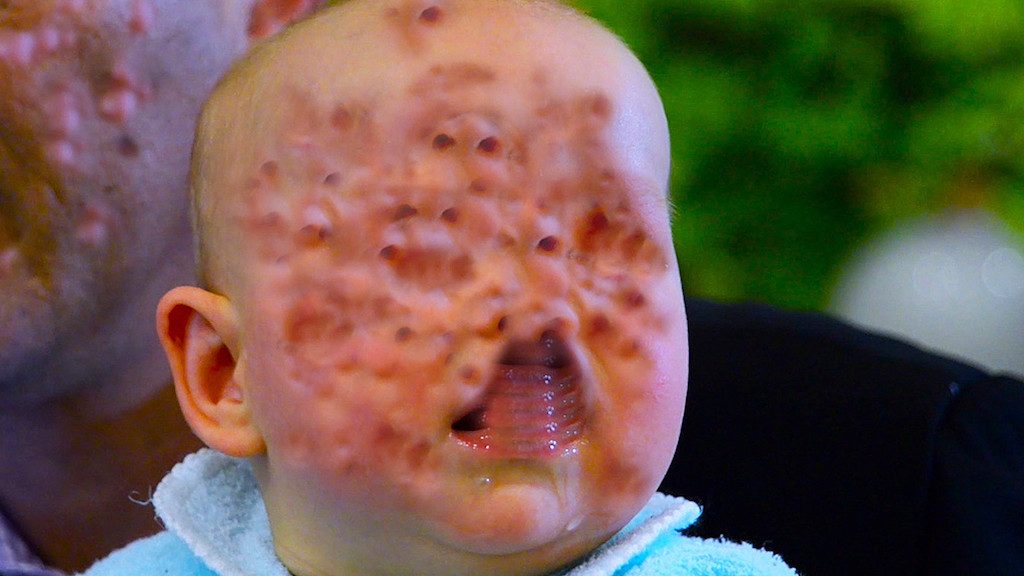

- You’re a man of many talents, having started off in music, and now ending up in filmmaking. Can you talk about what lead you into filmmaking?
It was being in a theatrical horror rock band, Darkness Visible, which led to the filmmaking. I could say that having made music videos naturally led to making films, but it didn’t. None of the crew on any of the 10 music videos that I did ever told me about the indie movie scene. It was actually a friend that I knew from bands that was making a feature movie that steered me down this path.
I knew Mark Bakaitis from the local gothic band scene where my band, Darkness Visible had worked with his band, Psych Carni. I didn’t know that he was also a film director until I was invited to be an extra on his horror feature film, “Cult Girls.” I met so many indie film industry people on his set that it just took off from there. My experience in producing music videos and being on stage with Darkness Visible came in handy and helped accelerate my progress. The idea of making short movies and the contacts to produce them came from having been on Cult Girls.
- I can’t think of anyone who works as hard as you do within the independent film scene in Australia. What are the challenges that you face with microbudget filmmaking?
The first big challenge is that you lack every single resource that costs money because you’re making films out of the change in your pocket. All the actors are volunteer and most crew are too. There are still expenses involved, so to keep them down, I’m constantly looking for anything that I can borrow. E.g. With “The Road to Hell is Still Undefined”, I reached out to the local steampunk community to see what props and costumes people could lend me. My main expenses on that film was the catering and a few items for my own costume.
- On top of this, your short film output is next level. What lessons have you learned along your filmmaking journey, and how do you manage to craft entertaining and horrific short films at a rapid pace?
I’ve been producing short films and promo pieces (shout outs and interviews) at the rate of being on camera once every 3 weeks and I can tell you that it is not a good idea to push yourself to this limit. I recently lost a friend, Guy Jukes, who had been with me for ten years, from the Darkness Visible music videos through to Horror House. I realised when he passed away, that I’d been so busy that I hadn’t even chatted via facebook private message with him for 6 months.
As well as losing contact with many friends and family, I’ve also lost friendships. Even though I’m working with different crews and spreading the work around, there are people that just can’t handle the pace over time and drop out. Sometimes they get nasty about it too. I spent the last couple of years, putting every spare minute after work into the film making and was constantly on the edge of exhaustion myself.
I wouldn’t call this good life management, but I feel that it’s been necessary to get the films made, distributed, promoted, and to get the ball rolling. If it sounds crazy, I can only compare this to what some of my friends experienced in going to medical school. Many worked around the clock during their internships. Others went through the grinder to become solicitors and accountants or to get qualified in various professions. What I’ve learned is that the film industry is no different and if you want to make it, you have to get serious and put in the hard yards.
Although I don’t recommend this pace for everyone, I’m going to stick with it for the long term. I got into the film making after my energy returned after having had cancer. It was like waking up and feeling that I’d suddenly grown old. I’m currently 55 and have been an artist all of my life, but haven’t made it yet. For me, it’s now or never.
- I’ve always been impressed with your dedication and support for Australian short films, with the Facebook group The Australian Short Film Network having over 8,000 members. What do you think sets Australian short filmmakers apart from the rest of the world?
The Australian Short Film Network is currently at over 9,000 members and has a very high activity level. I would say that it helps set Australian short film makers apart from much of the world due to helping them connect, find resources and share information. Every place that is blessed with a healthy online group tends to have a good level of quality and output. Many don’t though, so we are lucky in this country.
I would like to say that Australia is unique, but I think it’s more a case that we were in the past. Aussie directors pushed the boundaries in years gone by. If they couldn’t get onto cinema screens, they organised roadshows where their films were shown in tents at country agricultural shows and community centres. We still have some very talented and adventurous people out there, but for the majority, they are just playing safe and following the cues from overseas, rather than thumbing their nose at it all and blazing their own paths.
- It seems that as digital effects evolve, practical effects are being left behind. That’s not the case with your work though, as you show a great dedication to practical effects. What excites you about working with practical effects, and can you tell us about your favourite creation
I like both, but have used physical fx as much as possible. That’s probably due to the artist within me. I’ve gone to so many theatre shows where I’ve seen the illusions created live that I’ve been wowed, wondered how they did it and then wanted to see if I could do it myself. Even more than that, I wanted to get into that particular creative mind set so that I could work out how to apply my own to various ideas rather than just copying.
- Your work has often been in the realm of horror, what draws you to this genre, and what are the other genres that you enjoy working in?
I’m trying to explore them all, but most of the opportunities available have been within horror. That hasn’t fussed me because I absolutely love it. I’m also into sci-fi and comedy and have created shorts in that vein. With horror, I’m more attracted to the fantasy element of it. I love monsters and mythical creatures. These are a bit difficult to do at the low budget level so I hope things build so that one day I can create something amazing.
At this stage, I’m just keeping an eye on make-up schools where the students make fantastic prosthetics and hope that I can persuade one of the organisations to let me feature their work in one of my shorts. I might have to get my profile up a bit higher to entice one of them because so far the answer has been no, or they have quoted massive amounts of money. They are happy to pay big bucks to feature their work at various convention to get their stuff in front of the public, so there is hope for the future if I can build the fan base big enough.
- Your frequent collaborator is the one and only Tritia DeVisha. Can you talk about your working relationship and what makes Tritia such a great collaborator to work with?
Tritia is one of the actresses that I’ve work with a lot, but I do try to spread the work around. We did 6 episodes for Horror House, so that was where we really got the working relationship started. On the first episode, I was still a bit nervous and held back, but as things progressed, the magic started to appear as we learned how to bounce off of each other.
I’ve also done a few shoots with Anastasia C Kouloukas, such as “Parental Duties” and more recently “Sinister Symbiosis”. I’ve also worked with Vixey Tey on a few films, such as “The Road to Hell is Still Undefined”, “Blargenfloof and the Seventh Golden Shamrock ” and am shooting a quirky comedy called “Transgression Regression” with her in a few days’ time.
To keep every film different to the last, I have to work with different actors. Otherwise, we risk falling into a routine rather than keeping things fresh and innovative. I’m hoping to do a lot more short films in 2020 with both Anastasia and Vixey and am open to finding and developing new talent.
- Your short films having gotten a lot of airplay in the US and overseas. What has that experience been like? Also, what do you feel Australia could learn from international markets?
It’s been amazing how much support that I’ve gotten from the US and UK. My films are regularly being shown at cinemas on cult movie nights as the short before the feature. I’m also getting them seen into hosted horror shows on TV in the USA. They’ve also gone out on anthologies in both the USA and UK. By comparison, I hardly get included in anything within Australia.
The local Aussie indie scene seems to have a number of players that have been around for a long time and they’ve built their little empires. They risk stagnation by dealing mainly with each other, to the exclusion of newcomers. It’s like a little billabong of stagnant water. You could call it an old boys club and talk about nepotism, but I call it suicide because I see them post pics of their events and can clearly see that they have been under attended, despite the great flowery talk of their great success.
When it comes to what Aussies can learn from international markets, rather than looking at the continually changing trends and technologies, I think they should look at history. All big empires of the past became stagnant and were torn apart by newer, hungrier nations. Greece conquered Persia and Egypt, but then became stagnant and was conquered in turn by Rome. The trend isn’t so much in the ever changing details but in keeping new ideas and fresh blood coming into your projects. As soon as you stand still, the young wolves will eat you alive.
- What are the tips and suggestions can you give to aspiring filmmakers?
If you haven’t made a movie before, then just start. Don’t worry if you lack equipment because you can shoot on your iphone and can download editing software for free. Just get as much experience as you can with scripting, shooting and editing. Also, volunteer to go onto other indie sets in any capacity so that you can learn from others.
- Finally, what is the question you’d love to know the answer to?
That’s a great question because we are in the information age. So many answers are out there already as long as you know what questions to ask. The answer that I want is really …. What questions should I be asking in order to move ahead with the film making?
Make sure to subscribe to David Black’s Youtube channel, and check out all of David’s work on MyIndie Productions.

